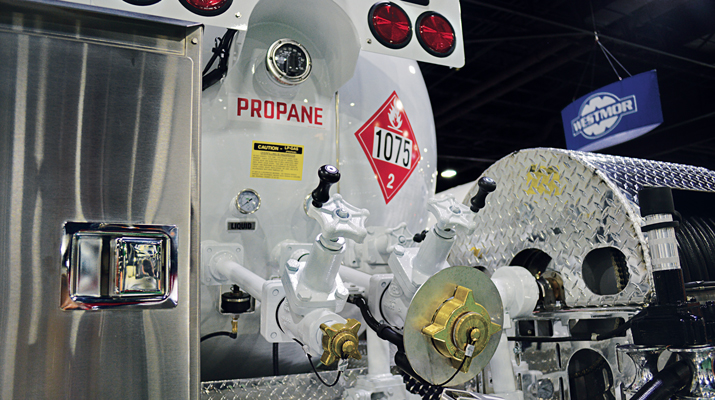Government influence on your truck fleet
LP Gas asked the National Propane Gas Association (NPGA) to weigh in on government issues impacting trucking fleets. Here’s what it had to say.
DRIVE-Safe Act

iStock.com/Olivier Le Moal
In February, the DRIVE-Safe Act was reintroduced in the U.S. House of Representatives and Senate. The bill would direct the secretary of transportation to issue regulations to permit an 18-21-year-old commercial driver’s license (CDL) holder to drive a commercial vehicle across state lines, during and upon completion of a two-step apprenticeship program. These regulations would be a crucial step in addressing the growing workforce challenges faced by the industry. In addition to strong business community support for the DRIVE-Safe Act, both bills have bipartisan support. NPGA is working to build additional congressional support and has activated its grassroots network to assist in the effort. NPGA encourages members who haven’t already engaged to contact Congress through npga.org/propane-days-365 to help advance this key legislative effort.
Pilot program explored for interstate drivers
On May 15, the Federal Motor Carrier Safety Administration (FMCSA) called for industry insight on the creation of a new pilot program for 18-20-year-old commercial drivers to operate in interstate commerce. The announcement seeks industry input on the safety performance, training and insurance coverage for 18-20-year-old commercial drivers who operate in intrastate commerce, which some states allow. FMCSA is soliciting industry insight for the potential pilot program in response to support for the DRIVE-Safe Act in the U.S. Senate and House of Representatives. It is a positive step to explore all possible solutions to a mounting driver shortage across all truck-reliant industries.
Pilot program for military vets with vehicle training
FMCSA is managing a similar pilot program for 18-20-year-old military veterans who received vehicle training during their service. FMCSA also finalized a regulatory change to allow states to waive certain commercial driver testing requirements for military veterans who received vehicle training during their service. Ohio is among the first states to submit a waiver application to FMCSA to permit the state to waive the skills assessment of CDL testing for military veterans. NPGA worked with the Ohio Propane Gas Association to support the waiver request.
Hours-of-service reforms
In June, FMCSA intended to publish a proposed rulemaking on hours-of-service (HOS) reforms. The proposal builds off an October 2017 notice from the Department of Transportation (DOT) that sought suggestions for regulatory reform. There was also a flurry of legislation in the House of Representatives’ last session of Congress regarding HOS. The details of FMCSA’s proposal were not yet public as of press time, but it may include modification to the short-haul operation exemption. NPGA has urged FMCSA, and gathered support from other trade associations, to expand the air-mile radius of the short-haul exemption as well as extend the maximum on-duty time.
Currently, drivers can use the short-haul exemption to avoid recordkeeping burdens if the driver operates within 100 air-miles of his or her work office, works for a maximum of 12 hours on duty and 11 hours driving, returns to the office at the end of each shift and has 10 consecutive hours off duty.
Electronic logging devices (ELDs)
An ELD is technology that automatically records a driver’s driving time and other aspects of HOS records. In December 2015, DOT finalized the ELD requirement. The ELD must be installed in most vehicles that are required to prepare records of duty status. The compliance date for installation of ELDs was Dec. 18, 2017. Vehicles that had previously installed automatic on-board recording devices (AOBRDs), which are somewhat different than ELDs, were granted additional time to replace the AOBRDs with ELDs. The compliance deadline to replace AOBRDs with ELDs is Dec. 16, 2019. While the ELDs track HOS for drivers, the ELD requirement did not change the HOS requirements.
Questions and comments
NPGA members can learn more about key governmental issues at npga.org. For questions, contact Sarah Reboli, deputy counsel of regulatory affairs, at sreboli@npga.org.















